May 28 stands as one of history’s most eventful days, witnessing the rise and fall of empires, groundbreaking discoveries, and moments that shaped our modern world across centuries of human achievement.
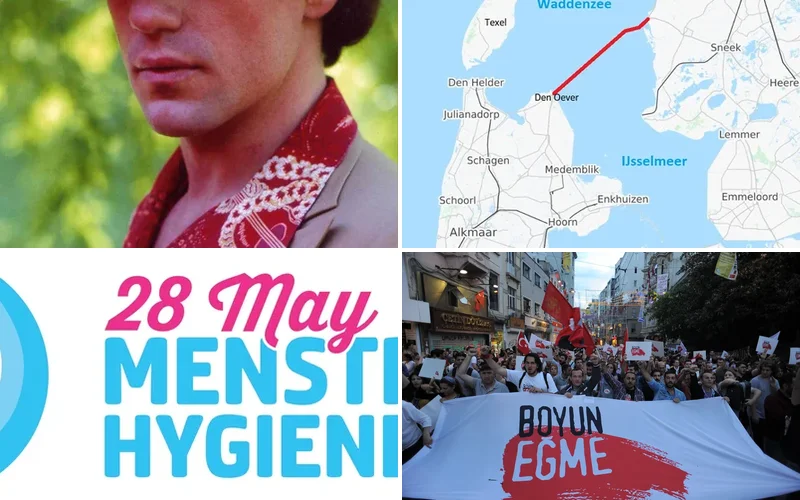
Politics and Government Events on May 28
1918 – Azerbaijan Democratic Republic and First Republic of Armenia Declare Independence
The Azerbaijan Democratic Republic and the First Republic of Armenia simultaneously declared their independence from the Transcaucasian Democratic Federative Republic. These declarations marked the emergence of two new sovereign states in the volatile Caucasus region.
The newly formed republics faced immediate challenges from regional powers and internal conflicts. Their independence would prove short-lived, as both nations would later be incorporated into the Soviet Union.
1926 – Portuguese Military Coup Establishes Ditadura Nacional
Military leaders launched the 28 May coup d’état in Portugal, overthrowing the unstable First Republic government. General Carmona and his supporters established the Ditadura Nacional to restore order and suppress political unrest.
The military dictatorship would evolve into António Salazar’s authoritarian Estado Novo regime. This coup fundamentally altered Portuguese politics for nearly five decades.
1948 – Daniel François Malan Elected Prime Minister of South Africa
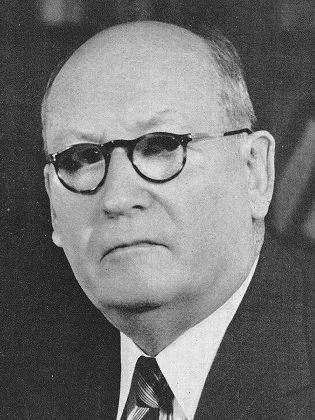
The National Party swept to power in South Africa’s general election, installing Daniel François Malan as Prime Minister. Malan’s victory represented a decisive shift toward institutionalized racial segregation policies.
His government would systematically implement apartheid legislation across all aspects of South African society. The election results would shape the country’s trajectory for the next four decades.
1964 – Palestine Liberation Organization Founded
The Palestine Liberation Organization officially formed during the first Palestinian National Council meeting in Jerusalem. Yasser Arafat emerged as the organization’s first leader, unifying various Palestinian resistance groups under one umbrella.
The PLO’s establishment provided Palestinians with a centralized political voice on the international stage. This organization would dominate Palestinian politics and diplomacy for decades to come.
1991 – Ethiopian People’s Revolutionary Democratic Front Captures Addis Ababa
Rebel forces of the Ethiopian People’s Revolutionary Democratic Front successfully captured Ethiopia’s capital city. The victory ended both the brutal Derg military regime and the devastating Ethiopian Civil War.
Mengistu Haile Mariam’s government collapsed after years of famine, warfare, and international isolation. The capital’s fall marked the beginning of a new era in Ethiopian politics.
2008 – Nepal Formally Declared a Republic
The Constituent Assembly of Nepal voted to abolish the monarchy and establish a federal democratic republic. This historic decision ended the 240-year reign of the Shah dynasty in the Himalayan kingdom.
King Gyanendra was forced to abdicate, and the royal family lost all political power. The declaration culminated years of civil war and pro-democracy movements throughout the country.
Military and Naval History on May 28
1905 – Battle of Tsushima Concludes with Japanese Victory
Admiral Tōgō Heihachirō’s Imperial Japanese Navy completely destroyed the Russian Baltic Fleet in the decisive Battle of Tsushima. The overwhelming Japanese victory effectively ended Russian naval power in the Pacific during the Russo-Japanese War.
The battle demonstrated Japan’s emergence as a major naval power and Russia’s military weakness. This crushing defeat forced Russia to negotiate peace terms and marked Japan’s rise as a regional hegemon.
1940 – Belgium Surrenders to Nazi Germany
King Leopold III ordered Belgian forces to surrender unconditionally to German invaders, ending the Battle of Belgium. The capitulation came after eighteen days of fierce fighting against overwhelming Wehrmacht forces.
The Belgian government fled to London while German forces occupied the entire country. This surrender opened the path for German advances toward France and the English Channel.
1940 – Allied Forces Recapture Narvik in Norway
Norwegian, French, Polish, and British forces successfully recaptured the strategic port city of Narvik from German occupiers. This victory marked the first Allied infantry success against German forces in World War II.
The triumph demonstrated that Wehrmacht forces could be defeated through coordinated international efforts. However, the Allies would soon abandon Norway due to the deteriorating situation in France.
1958 – Castro’s Forces Overwhelm Army Post in El Uvero
Fidel Castro’s 26th of July Movement, reinforced by Frank País Militia units, successfully attacked and captured a government army post in El Uvero. The victory demonstrated the growing strength of the Cuban revolutionary movement in the Sierra Maestra mountains.
The successful assault provided Castro’s forces with valuable weapons and ammunition for their campaign. This tactical victory boosted rebel morale and recruitment throughout eastern Cuba.
Science and Discovery Milestones on May 28
1936 – Alan Turing Submits Revolutionary Computing Paper

Alan Turing submitted his groundbreaking paper “On Computable Numbers” for publication, laying the theoretical foundation for modern computer science. His work introduced the concept of the Turing machine and explored the limits of computation.
The paper would revolutionize mathematics and logic while establishing the theoretical framework for digital computers. Turing’s insights would prove essential for the development of artificial intelligence and computer programming.
1962 – Soviet Union Launches Kosmos 5 Satellite
The Soviet space program successfully launched the Kosmos 5 satellite as part of their expanding space exploration initiative. This launch continued the USSR’s efforts to maintain technological superiority in the Cold War space race.
The satellite carried scientific instruments to study Earth’s atmosphere and space environment. The mission provided valuable data for future Soviet space endeavors and military applications.
1998 – Pakistan Conducts Nuclear Tests Chagai-I
Pakistan detonated five nuclear devices in the Chagai-I test series, responding to India’s recent nuclear weapons tests. The explosions established Pakistan as the world’s seventh nuclear power and escalated regional tensions.
The United States, Japan, and other nations immediately imposed economic sanctions on Pakistan. The tests fundamentally altered the strategic balance in South Asia and increased global nuclear proliferation concerns.
Cultural and Arts Events on May 28
1999 – Leonardo da Vinci’s The Last Supper Returns to Display
After twenty-two years of painstaking restoration work, Leonardo da Vinci’s masterpiece “The Last Supper” was unveiled to the public in Milan, Italy. The extensive restoration project had carefully removed centuries of damage and previous restoration attempts.
Conservators used advanced techniques to reveal previously hidden details in the Renaissance masterpiece. The restored fresco attracted millions of visitors eager to experience da Vinci’s artistic genius in its renewed glory.
2016 – Harambe Incident Sparks Global Controversy

Cincinnati Zoo officials shot and killed Harambe, a western lowland gorilla, after a three-year-old boy fell into the animal’s enclosure. The incident sparked intense public debate about zoo safety protocols and animal welfare.
The controversial decision generated widespread criticism and launched countless internet memes and social media discussions. The incident highlighted ongoing tensions between animal conservation efforts and public safety concerns.
2017 – Takuma Sato Wins Indianapolis 500
Former Formula One driver Takuma Sato became the first Japanese and Asian driver to win the prestigious Indianapolis 500 race. His historic victory came in his third attempt at the legendary American motorsport event.
Two-time world champion Fernando Alonso retired from his first Indianapolis 500 attempt due to engine problems. Sato’s triumph marked a significant milestone for Asian representation in American motorsports.
Religious and Social Events on May 28
1961 – Peter Benenson Publishes “The Forgotten Prisoners”

British lawyer Peter Benenson published his influential article “The Forgotten Prisoners” in several internationally distributed newspapers. The article highlighted the plight of political prisoners worldwide and called for global action to support them.
This publication would later be recognized as the founding moment of Amnesty International, the prominent human rights organization. Benenson’s article inspired thousands of people to join the fight for human rights and prisoner advocacy.
1975 – Fifteen West African Countries Sign Treaty of Lagos

Representatives from fifteen West African nations signed the Treaty of Lagos, establishing the Economic Community of West African States (ECOWAS). The agreement aimed to promote economic integration and cooperation across the region.
The treaty created frameworks for trade liberalization, monetary cooperation, and joint development projects. ECOWAS would become one of Africa’s most successful regional economic organizations.
2013 – Gezi Park Protests Begin in Turkey
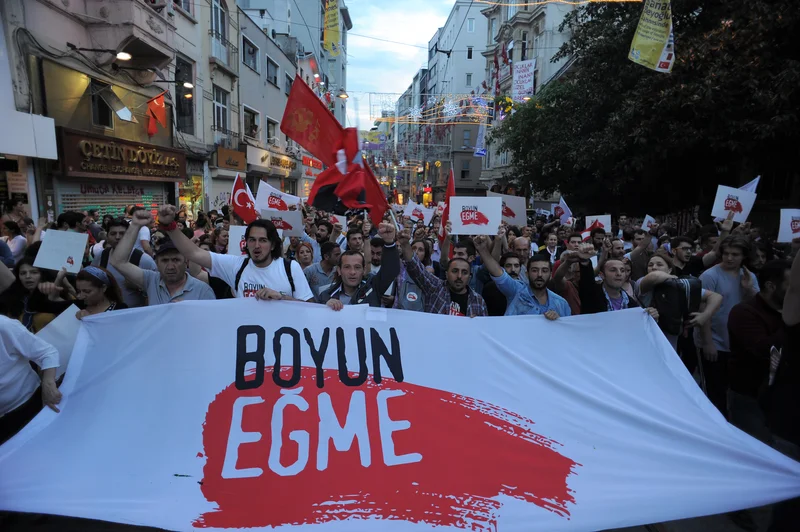
Protesters gathered in Istanbul’s Gezi Park to oppose government plans to redevelop the green space into a shopping mall. The small environmental demonstration quickly escalated into nationwide protests against government policies.
The protests highlighted growing tensions between secular and religious segments of Turkish society. The movement challenged President Erdoğan’s increasingly authoritarian governance and sparked similar demonstrations across Turkey.
Business and Economic Events on May 28
1937 – Volkswagen Automobile Company Founded
The German automobile manufacturer Volkswagen was officially established as part of the Nazi Party’s “Kraft durch Freude” (Strength through Joy) program. The company was initially created to produce affordable cars for German workers.
Ferdinand Porsche designed the original Volkswagen Beetle, which would become one of the world’s best-selling automobiles. The company would later transform into a global automotive giant following World War II.
1979 – Greece Signs European Economic Community Accession Treaty
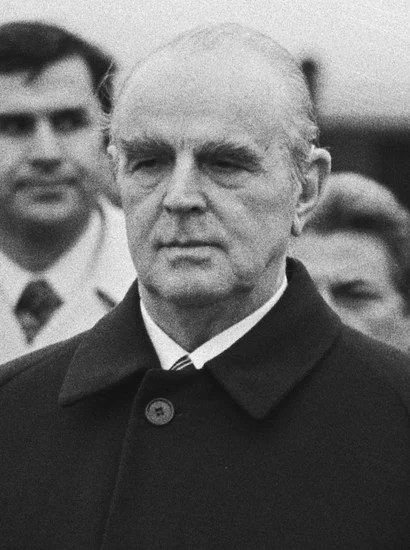
Prime Minister Konstantinos Karamanlis signed the full treaty for Greece’s accession to the European Economic Community. The agreement marked Greece’s integration into the European project following years of negotiations.
The treaty would bring significant economic benefits and political stability to Greece after decades of instability. Greece’s membership would pave the way for broader European integration in the Mediterranean region.
1996 – Whitewater Scandal Convictions Announced

Jim McDougal, Susan McDougal, and Arkansas Governor Jim Guy Tucker were convicted of fraud charges related to President Bill Clinton’s Whitewater land deal. The convictions emerged from Independent Counsel Kenneth Starr’s investigation into the Clinton administration.
The legal proceedings intensified political pressure on President Clinton and his administration. The scandal would contribute to broader investigations that would eventually lead to Clinton’s impeachment proceedings.
Transportation and Infrastructure on May 28
1932 – Afsluitdijk Completed in the Netherlands
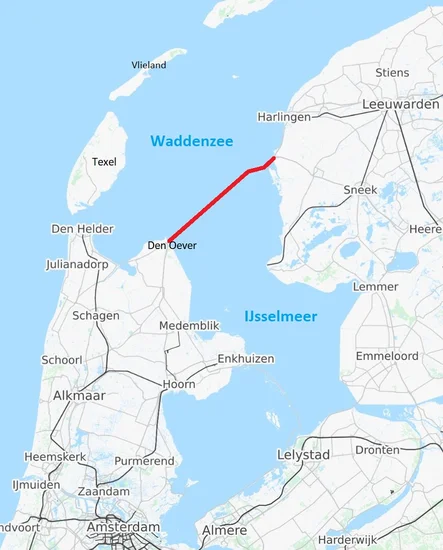
Dutch engineers completed construction of the massive Afsluitdijk barrier dam, converting the Zuiderzee bay into the freshwater IJsselmeer. The 32-kilometer barrier represented one of the most ambitious hydraulic engineering projects in history.
The dam provided crucial flood protection for millions of Dutch citizens while creating new agricultural land. The project demonstrated the Netherlands’ mastery of water management and land reclamation techniques.
1987 – Mathias Rust Lands Plane in Red Square

Eighteen-year-old West German pilot Mathias Rust successfully evaded Soviet air defenses and landed his small Cessna aircraft in Moscow’s Red Square. The unprecedented breach of Soviet airspace embarrassed military leaders and shocked the international community.
The incident exposed serious weaknesses in Soviet air defense systems during the Cold War. Rust’s flight contributed to military reforms and highlighted the changing nature of East-West relations.
2002 – Final Steel Girder Removed from World Trade Center Site
Workers removed the last steel girder from the original World Trade Center site, officially ending cleanup operations at Ground Zero. The solemn ceremony marked the completion of the massive recovery effort following the September 11 attacks.
The cleanup operation had lasted eight months and involved thousands of workers searching through debris. The ceremony provided closure for families and marked the beginning of rebuilding efforts at the site.
Sports and Recreation on May 28
1907 – First Isle of Man TT Race Held

The inaugural Isle of Man Tourist Trophy motorcycle race took place on the island’s challenging mountain course. Twenty-five riders competed in the groundbreaking event that would become one of motorsport’s most prestigious and dangerous competitions.
Charlie Collier won the first single-cylinder race on a Matchless motorcycle, averaging 38.22 mph over the course. The TT races would evolve into the ultimate test of motorcycle racing skill and courage.
1934 – Dionne Quintuplets Born in Canada
Near Callander, Ontario, Oliva and Elzire Dionne welcomed quintuplets who would become the first known quintuplets to survive infancy. The five identical girls immediately became international celebrities and medical marvels.
The quintuplets were placed under government care and became major tourist attractions for the province. Their unique situation raised important questions about children’s rights and exploitation by government and media.
2011 – Malta Approves Divorce Referendum
Maltese voters approved the introduction of divorce by a narrow margin of 53% in a historic referendum. The result ended Malta’s status as the only European Union member state without legal divorce provisions.
The Catholic Church had strongly opposed the referendum, making the result a significant victory for secular politics. Parliament later enacted legislation allowing divorce under specific circumstances and conditions.
Notable Births on May 28
1908 – Ian Fleming Born
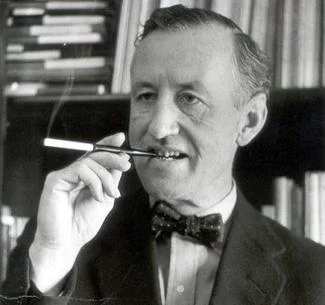
English journalist and author Ian Fleming was born in London, beginning a life that would create one of literature’s most enduring characters. His experiences as a naval intelligence officer during World War II would later influence his writing career.
Fleming would go on to create the iconic secret agent James Bond in twelve novels and short stories. His sophisticated spy thrillers would inspire countless films, books, and cultural adaptations worldwide.
1910 – T-Bone Walker Born

American blues musician T-Bone Walker was born in Linden, Texas, and would become one of the most influential electric blues guitarists in history. His innovative playing style helped define the sound of modern blues music.
Walker pioneered the use of the electric guitar in blues music and influenced countless musicians including B.B. King and Chuck Berry. His smooth vocal style and flashy stage presence made him a major attraction in clubs and theaters.
1913 – Patrick White Born
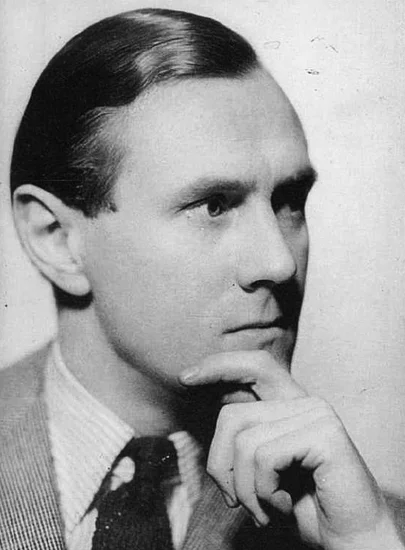
Australian novelist Patrick White was born in London to Australian parents, beginning a literary career that would earn him the Nobel Prize in Literature. His complex novels explored themes of isolation, spirituality, and Australian identity.
White would become the first Australian to win the Nobel Prize for Literature in 1973. His works including “The Tree of Man” and “Voss” established him as one of the most important English-language writers of the 20th century.
1925 – Dietrich Fischer-Dieskau Born

German baritone Dietrich Fischer-Dieskau was born in Berlin and would become one of the most celebrated classical singers of the 20th century. His interpretations of German lieder and opera roles set new standards for vocal artistry.
Fischer-Dieskau recorded over 400 albums and performed with the world’s leading orchestras and conductors. His intellectual approach to song interpretation influenced generations of classical singers and musicians.
1944 – Rudy Giuliani Born

American lawyer and politician Rudy Giuliani was born in Brooklyn, New York, launching a career that would make him one of America’s most recognizable political figures. His early legal career focused on prosecuting organized crime in New York City.
Giuliani would serve as New York City’s mayor from 1994 to 2001, gaining national prominence for his leadership during the September 11 attacks. His political career would later include serving as personal attorney to President Donald Trump.
1968 – Kylie Minogue Born

Australian singer and actress Kylie Minogue was born in Melbourne, beginning a career that would make her one of pop music’s most enduring stars. Her early success on Australian television led to an international recording career.
Minogue would sell over 80 million records worldwide and become known as the “Princess of Pop.” Her resilience in overcoming breast cancer and her continued musical evolution have made her an inspiration to fans globally.
Notable Deaths on May 28
1972 – Edward VIII of the United Kingdom Dies

The former King Edward VIII died in Paris, ending the controversial life of Britain’s only monarch to voluntarily abdicate the throne. His 1936 abdication to marry American divorcée Wallis Simpson had created a constitutional crisis.
Edward lived in exile as the Duke of Windsor following his abdication, maintaining a complex relationship with the British royal family. His death marked the end of one of the most dramatic chapters in modern British royal history.
1981 – Stefan Wyszyński Dies
Polish Cardinal Stefan Wyszyński died in Warsaw, ending his influential tenure as Primate of Poland during the communist era. His leadership of the Catholic Church provided moral guidance to millions of Poles under Soviet domination.
Wyszyński’s resistance to communist authorities helped preserve Polish religious and cultural identity. His mentorship of Pope John Paul II contributed to the eventual fall of communism in Eastern Europe.
1998 – Phil Hartman Dies

Canadian-American comedian and actor Phil Hartman died tragically in Los Angeles, ending a brilliant career in television and film. His versatile performances on “Saturday Night Live” and “NewsRadio” had made him one of comedy’s most beloved figures.
Hartman’s death shocked the entertainment industry and deprived audiences of one of their most talented performers. His voice work on “The Simpsons” and his memorable SNL characters remain cultural touchstones.
2014 – Maya Angelou Dies

American poet and memoirist Maya Angelou died in North Carolina, ending a remarkable literary career that inspired millions worldwide. Her autobiographical work “I Know Why the Caged Bird Sings” had become a classic of American literature.
Angelou’s powerful writing about racism, trauma, and resilience gave voice to the African American experience. Her influence extended beyond literature into civil rights activism and inspirational speaking.
Holidays and Observances on May 28
Republic Day in Nepal
Nepal celebrates Republic Day to commemorate the formal declaration of the country as a federal democratic republic in 2008. The holiday marks the end of centuries of monarchical rule and the beginning of democratic governance.
Citizens participate in parades, cultural programs, and patriotic ceremonies throughout the country. The day serves as a reminder of Nepal’s transition from monarchy to democracy.
Youm-e-Takbir in Pakistan

Pakistan observes Youm-e-Takbir (Day of Greatness) to commemorate the successful nuclear tests conducted on this date in 1998. The holiday celebrates Pakistan’s emergence as a nuclear power and its technological achievements.
The day features patriotic ceremonies, military parades, and speeches by government officials. Pakistani citizens express national pride in their country’s scientific and defense capabilities.
Menstrual Hygiene Day Worldwide

International organizations and advocates observe Menstrual Hygiene Day to raise awareness about menstrual health and hygiene issues. The date was chosen because the average menstrual cycle is 28 days long.
The observance aims to break taboos surrounding menstruation and promote access to hygiene products and education. Advocates work to improve menstrual health resources for women and girls globally.
